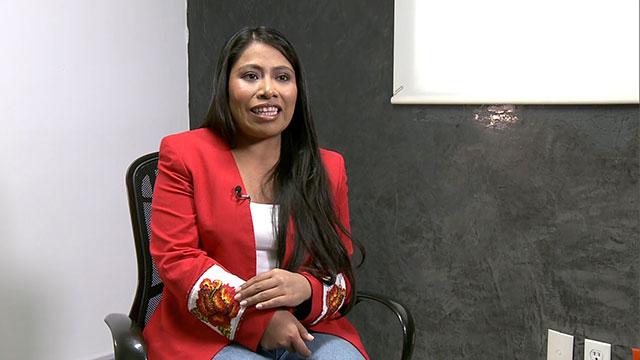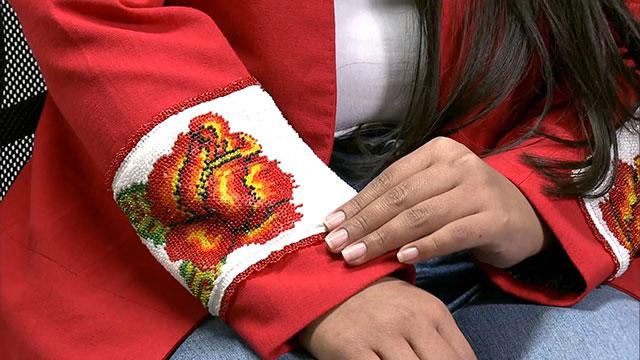If you didn’t know her story, you’d think Yalitza Aparicio, who sat down for an exclusive interview with NHK in April, had been a movie star for decades.
But the 25-year-old Mexican actress and native of Oaxaca has only a single acting credit to her name -- the role of domestic worker Cleo in the 2018 film ‘Roma,’ which follows her as she tries to build a life outside of the wealthy household that employs her.
Aparicio’s debut made headlines worldwide when she was nominated for a 2019 Oscar for best actress, an honor that’s usually reserved for veterans of the silver screen.
But she belongs to an even more exclusive club. Aparicio is only the second best-actress nominee of indigenous descent, and the first native Mexican. Born in Tlaxiaco, Oaxaca, Aparicio is of Triqui and Mixtec heritage, which are two of Mexico’s pre-Columbian ethnicities.
"I feel very proud because my family always instilled in me a respect for who I am," she said in Spanish during the interview. "I belong to two totally different cultures, Mixtec and Triqui, and I’m proud because I have the opportunity to show how important they are and what riches they have."

The attention focused on ‘Roma,’ which was nominated for 10 Oscars including best picture, has turned Aparicio into a sort of unofficial spokesperson for indigenous rights, a role she’s been quick to embrace. She’s lectured at a university in Mexico City, appeared as the first indigenous woman on the cover of Vogue Mexico and even spoke at the United Nations in Geneva for International Women’s Day.
"It’s amazing for me to be able to show these communities to the world," Aparicio says, "to be able to show the talent that everyone has. It gives me a lot of pride."

But Aparicio’s success has also made her the target of disparagement, in the form of both common internet trolling and personal attacks from within the Mexican entertainment industry.
Earlier this year, Mexican soap opera star Sergio Goyri referred to Aparicio using a particularly vulgar racial slur. Video footage of the slander surfaced on social media, and the actor was later forced to make a public apology.
The actress has risen above the racism she’s endured by calling attention to the social and economic discrimination faced by more than 25 million indigenous Mexicans.
"The indigenous community suffers from discrimination in different ways," Aparicio says. "It’s because of our physical appearance, our skin color. You can only have a certain kind of job, can only think a certain way. It makes it impossible to have your own dreams."
Representation on screen plays a major role in reinforcing these stereotypes, she says. "Society needs to be able to see that we can be different. You’re not any less important or less valuable because you don’t fit a specific mold."
But it isn’t just stereotypes that prey upon indigenous Mexicans, who account for more than a fifth of the country's total population. Deep social and institutional divides within Mexico have stood in the way of advancement since the era of Spanish colonization.
According to the Mexican government, 40.6 percent of non-indigenous Mexicans live in poverty, while that number climbs to 71.9 percent for the indigenous population. Socioeconomic indicators are lower for the indigenous across the board. They have higher infant mortality and illiteracy rates and less access to education and the healthcare system.
"This is why it’s so important that we show indigenous people in a positive way," says Luis Rosales, the casting director who discovered Aparicio after auditioning more than 3,000 candidates from across Mexico. "People with darker skin always play in the background. They’re never the lead in the story, or they’re always the victim or the bad guy. There’s this assumption that they don’t deserve to be happy."
Such assumptions are exactly what Aparicio is working to overturn.
"You have to respond to these things with love," she says. "I have always tried to let society know that we need to focus on the things that will move us forward, not back."

